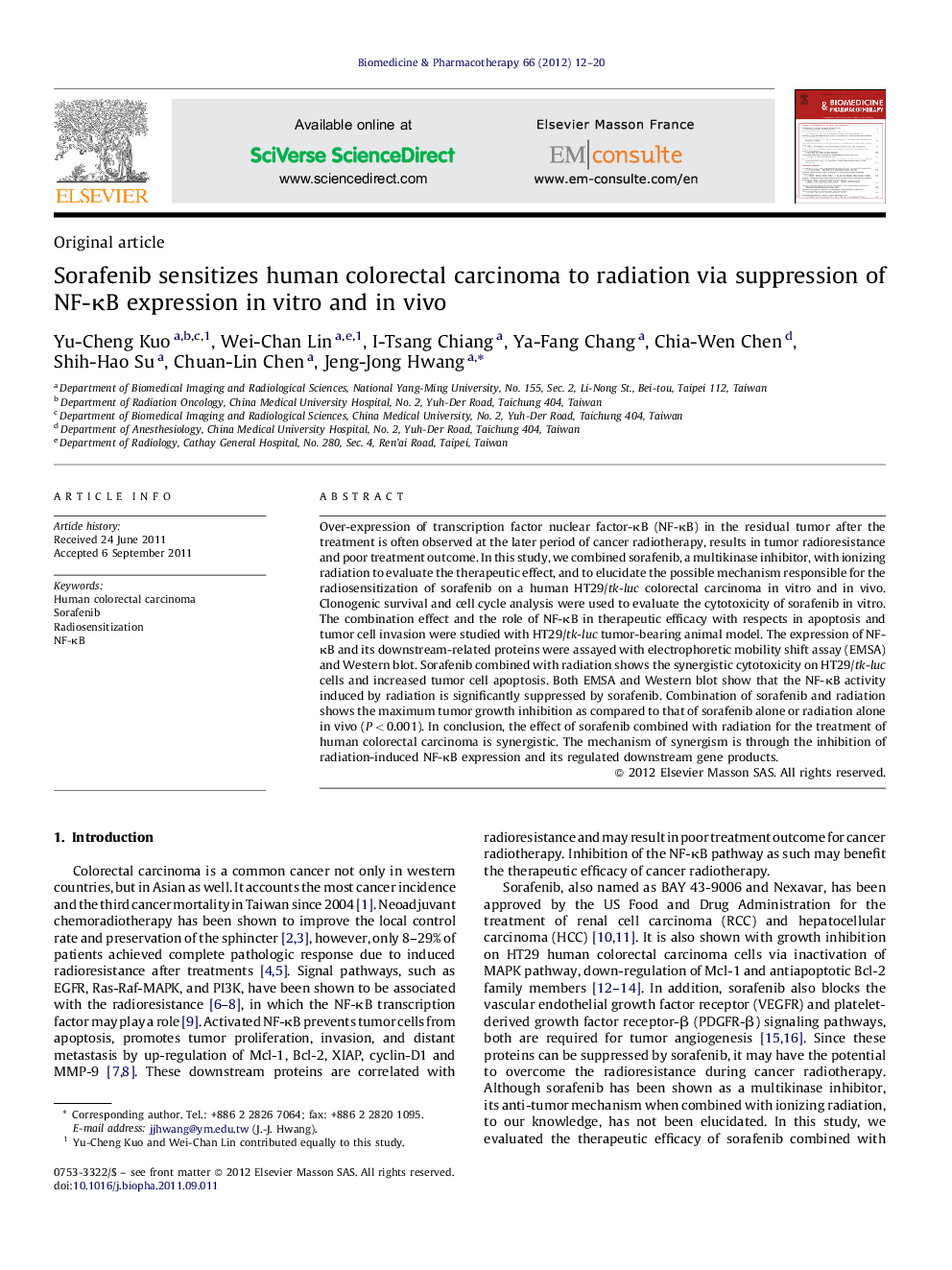| Article ID | Journal | Published Year | Pages | File Type |
|---|---|---|---|---|
| 2524393 | Biomedicine & Pharmacotherapy | 2012 | 9 Pages |
Over-expression of transcription factor nuclear factor-κB (NF-κB) in the residual tumor after the treatment is often observed at the later period of cancer radiotherapy, results in tumor radioresistance and poor treatment outcome. In this study, we combined sorafenib, a multikinase inhibitor, with ionizing radiation to evaluate the therapeutic effect, and to elucidate the possible mechanism responsible for the radiosensitization of sorafenib on a human HT29/tk-luc colorectal carcinoma in vitro and in vivo. Clonogenic survival and cell cycle analysis were used to evaluate the cytotoxicity of sorafenib in vitro. The combination effect and the role of NF-κB in therapeutic efficacy with respects in apoptosis and tumor cell invasion were studied with HT29/tk-luc tumor-bearing animal model. The expression of NF-κB and its downstream-related proteins were assayed with electrophoretic mobility shift assay (EMSA) and Western blot. Sorafenib combined with radiation shows the synergistic cytotoxicity on HT29/tk-luc cells and increased tumor cell apoptosis. Both EMSA and Western blot show that the NF-κB activity induced by radiation is significantly suppressed by sorafenib. Combination of sorafenib and radiation shows the maximum tumor growth inhibition as compared to that of sorafenib alone or radiation alone in vivo (P < 0.001). In conclusion, the effect of sorafenib combined with radiation for the treatment of human colorectal carcinoma is synergistic. The mechanism of synergism is through the inhibition of radiation-induced NF-κB expression and its regulated downstream gene products.
